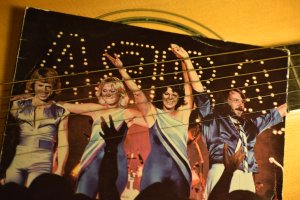- Media, arts and culture

Longer Reads
PRS, LIVENow, and the business of responsible livestreaming licensing
The Performing Right Society (the “PRS”), a UK songwriters and publishers’ royalty collection society, has issued legal proceedings on 2 December 2022 in the High Court against LIVENow, a livestreaming platform.
5 minute read
Published 7 February 2023
Key information
- Specialisms
- Dispute Resolution
- Services
- Media, arts and culture
LIVENow is a live-streaming platform, for broadcasting live concerts online without first obtaining a licence for the inclusion of songs written and/or published by the members of the PRS. LIVENow is best known for live broadcasting Dua Lipa’s Studio 2054 concert in November 2020, which was filmed in London’s Printworks Venue and won the Guinness world record for highest ticket sales for a paid live stream by a female artist. The PRS obtains from its members the rights to collect royalties within the UK and charges differing rates for live and live-streamed concerts.
Following LIVENow refusing to provide the PRS with the revenue information required to calculate royalties, and an extensive period of negotiation, the lawsuit, according to PRS, is the culmination of the PRS’s endeavours to obtain royalty payments.
No defence to the claim has yet been filed. On the face of it, providing PRS can demonstrate that it is empowered to exercise its members’ right to prevent streaming of their music without consent in the form of a licence and can prove that LIVENow’s streaming of their songs infringes those rights, they are likely to succeed in their claim for damages. PRS are also seeking an injunction against LIVENow to prevent their further streaming of their members’ music which also seems likely to succeed unless agreement can be reached between PRS and LIVENow for a licensing regime.
Whilst unlikely to be ground-breaking legally the case is important from the view of PRS and their members in sounding alarm bells to other online platforms who may wish to stream live “virtual” events without PRS’s blessing. It also reassures PRS members that they are doing their job in policing copyright infringements on their behalf.
No trial date has yet been set and one can only guess what LIVENow’s defence may look like. The claim, rather than setting out a figure for damages, seeks a reasonable licence fee for each infringement committed by LIVENow in the six years prior to the date of the claim. The claim form sets out the particulars of only one sample infringement of Dua Lipa’s Studio 54 concert which was filmed at London’s Printworks on 27th November 2020 and the claim sets out 18 songs which featured in that performance. The event was allegedly watched in 150 countries with ticket sales of nearly 285,000. The claim quotes Rolling Stone magazine’s report that the event attracted 5,000,000 viewers suggesting that the concert was made available to huge numbers of subscribers free of charge to promote LIVENow’s business. The claim goes on to say that LIVENow has hosted more than 25 virtual music concerts some pay-per-view and others free of charge which PRS will claim against in addition.
What is the current system for licensing content from an artist for live-streamed concerts?
Songwriters and music publishers pay a fee to become members of PRS. PRS collects income from the performance of songs from many sources, primarily radio, TV, pubs, discos, live music events also “hold music” (on telephones) and cinemas. From the revenue PRS receives, it deducts its administrative expenses and pays the balance to its members. There is a variety of tariffs which the PRS charges to companies effecting the performing or broadcasting of songs which PRS controls.
The PRS’s tariff for live-stream events has a controversial history. In 2020, when Covid led to increased engagement with live-streaming platforms, the PRS first proposed introducing a new live-streaming licence at a starting rate of 8% rising to 17% of gross ticket receipts compared to live in-person concerts which was generally 4 – 4.2% of gross ticket receipts.
In December 2020, a letter was written by the Music Managers Forum (MMF) and Featured Artists Coalition (FAC), which includes managers of stars such as Dua Lipa and the Arctic Monkeys, urging the PRS to reconsider the proposed livestream event tariff as unaffordable for both emerging talent and superstars alike. They pointed out what they said was a “staggering disconnect” between the rate for a live event compared to a streamed event. In their argument they succinctly stated that “a ticket is a ticket”.
They were particularly irked by the fact the PRS held no consultation and, in their view, imposed arbitrary terms intending them to be applied retrospectively, which could cause grave financial distress facing artists and their wider teams, especially during the pandemic. They argued that charging artists up to four times the live rate would strangle, rather than nurture, the innovation of livestreaming, and that it would be impossible for some smaller artists to find the additional monies to pay the PRS, when they only just manage to cover their livestreaming costs anyway.
The letter was signed by just under 90 managers. It can be assumed that it was a result of that letter that PRS reduced the rate they were seeking for live-streaming to the present rate of the higher of 3p per 5 mins of song and 10% of the event revenue. If a concert is both live streamed and has a live audience at the venue, two licences will be necessary from the PRS.
Possibly, as a result of the MMF/FAC protest, at the beginning 2021, PRS announced that members performing their own works in small online ticketed concerts can obtain a free licence. It is important to consider who is actually responsible for obtaining a PRS licence for concerts. Essentially, it is the person responsible for the performance of the songs. In the case of live events that will be the promoter or venue. In the case of streamed events, generally whoever is “communicating the songs to the public” which, in the case of LIVENow would have been LIVENow.
The reason PRS offered a free licence for performers performing their own work for small online ticketed concerts was so that whoever was operating the online platform (which could of course be the artists themselves) would not have to pay for the privilege of the artist performing their own songs only for the artist ultimately receiving back that payment less the deduction of administrative expenses.
It has long been argued by some singer/songwriters that it is quite unjust that when performing their songs at a large super event, such as the O2, the promoter of the event would need to pay PRS a sizeable sum in respect of those songs. PRS would then deduct their administration fee and sometime later the singer/songwriters will receive the balance of the money PRS collected. As far as I am aware, that remains the case with PRS refusing to vary their normal policy. It should be noted that the exemption being granted by PRS in relation to “small online ticketed concerts” means any individual concert with revenue below £500.
As long ago as 1993, U2’s manager Paul McGuinness threatened to sue PRS unless they agreed that the group should collect their own live performance fees directly from the promoter. McGuinness was supported by the managers of both Simply Red and Dire Straits. McGuinness argued that PRS held on to monies collected for too long and that the administration fees deducted were too high. In essence a part of the revenue that would otherwise be paid to the artists was deducted by the promoter and paid to PRS. One of the arguments U2 put up in support of their claim was that PRS requirements which controlled groups’ live performance rights contravened EU competition law and also were a restraint of trade under English law.
Although there is no evidence that the case got to court or that the band managers persuaded the PRS in their favour, it may be that LIVENow’s lawyers do run those arguments: PRS’s monopoly in controlling live performance rights is a breach of competition law.
Whilst many PRS members may be grateful that it is taking action against LIVENow and that the action serves as a warning to other live streaming platforms who host virtual concerts without a PRS licence, it also raises the issue of PRS being a monopoly and highlights the discord between its role as a policeman protecting its members’ rights and on the other hand its rather inflexible nature.
What should artists do to ensure that they receive all the royalties they are owed?
This issue is about songwriter artists. This does not involve artists who are not songwriters. Most songwriters have assigned their copyright to music publishers who collect music royalties on their behalf (including 50% of the monies which PRS collect). The publishers royalty departments will scrutinise royalty statements they receive from various quarters to ensure the proper royalties are being paid. They will issue royalty statements to the songwriters who should themselves review them carefully (or ask their accountants to do so).
What is the future likely to be for hybrid content like live-streamed concerts?
Streaming platforms became very popular during lockdown but continue to provide access to fans who are unable to attend concerts directly. In a sense, there is nothing new at all about live-streamed concerts. Music has been disseminated via the internet for very many years, and platforms such as YouTube are properly licensed by PRS. Owners of live-streaming platforms should ensure that they obtain the licences they need to undertake live-streaming.
Latest news on the PRS/LIVENow dispute
The case has just been adjourned until 1 March so that the parties can engage in Alternative Dispute Resolution. If the dispute is resolved through ADR we are unlikely to know the agreement reached.
For more information, visit our Intellectual Property Lawyers page.
This summary was first published on Omdia in February 2023.
Related content
Longer Reads
PRS, LIVENow, and the business of responsible livestreaming licensing
The Performing Right Society (the “PRS”), a UK songwriters and publishers’ royalty collection society, has issued legal proceedings on 2 December 2022 in the High Court against LIVENow, a livestreaming platform.
Published 7 February 2023
Associated sectors / services
LIVENow is a live-streaming platform, for broadcasting live concerts online without first obtaining a licence for the inclusion of songs written and/or published by the members of the PRS. LIVENow is best known for live broadcasting Dua Lipa’s Studio 2054 concert in November 2020, which was filmed in London’s Printworks Venue and won the Guinness world record for highest ticket sales for a paid live stream by a female artist. The PRS obtains from its members the rights to collect royalties within the UK and charges differing rates for live and live-streamed concerts.
Following LIVENow refusing to provide the PRS with the revenue information required to calculate royalties, and an extensive period of negotiation, the lawsuit, according to PRS, is the culmination of the PRS’s endeavours to obtain royalty payments.
No defence to the claim has yet been filed. On the face of it, providing PRS can demonstrate that it is empowered to exercise its members’ right to prevent streaming of their music without consent in the form of a licence and can prove that LIVENow’s streaming of their songs infringes those rights, they are likely to succeed in their claim for damages. PRS are also seeking an injunction against LIVENow to prevent their further streaming of their members’ music which also seems likely to succeed unless agreement can be reached between PRS and LIVENow for a licensing regime.
Whilst unlikely to be ground-breaking legally the case is important from the view of PRS and their members in sounding alarm bells to other online platforms who may wish to stream live “virtual” events without PRS’s blessing. It also reassures PRS members that they are doing their job in policing copyright infringements on their behalf.
No trial date has yet been set and one can only guess what LIVENow’s defence may look like. The claim, rather than setting out a figure for damages, seeks a reasonable licence fee for each infringement committed by LIVENow in the six years prior to the date of the claim. The claim form sets out the particulars of only one sample infringement of Dua Lipa’s Studio 54 concert which was filmed at London’s Printworks on 27th November 2020 and the claim sets out 18 songs which featured in that performance. The event was allegedly watched in 150 countries with ticket sales of nearly 285,000. The claim quotes Rolling Stone magazine’s report that the event attracted 5,000,000 viewers suggesting that the concert was made available to huge numbers of subscribers free of charge to promote LIVENow’s business. The claim goes on to say that LIVENow has hosted more than 25 virtual music concerts some pay-per-view and others free of charge which PRS will claim against in addition.
What is the current system for licensing content from an artist for live-streamed concerts?
Songwriters and music publishers pay a fee to become members of PRS. PRS collects income from the performance of songs from many sources, primarily radio, TV, pubs, discos, live music events also “hold music” (on telephones) and cinemas. From the revenue PRS receives, it deducts its administrative expenses and pays the balance to its members. There is a variety of tariffs which the PRS charges to companies effecting the performing or broadcasting of songs which PRS controls.
The PRS’s tariff for live-stream events has a controversial history. In 2020, when Covid led to increased engagement with live-streaming platforms, the PRS first proposed introducing a new live-streaming licence at a starting rate of 8% rising to 17% of gross ticket receipts compared to live in-person concerts which was generally 4 – 4.2% of gross ticket receipts.
In December 2020, a letter was written by the Music Managers Forum (MMF) and Featured Artists Coalition (FAC), which includes managers of stars such as Dua Lipa and the Arctic Monkeys, urging the PRS to reconsider the proposed livestream event tariff as unaffordable for both emerging talent and superstars alike. They pointed out what they said was a “staggering disconnect” between the rate for a live event compared to a streamed event. In their argument they succinctly stated that “a ticket is a ticket”.
They were particularly irked by the fact the PRS held no consultation and, in their view, imposed arbitrary terms intending them to be applied retrospectively, which could cause grave financial distress facing artists and their wider teams, especially during the pandemic. They argued that charging artists up to four times the live rate would strangle, rather than nurture, the innovation of livestreaming, and that it would be impossible for some smaller artists to find the additional monies to pay the PRS, when they only just manage to cover their livestreaming costs anyway.
The letter was signed by just under 90 managers. It can be assumed that it was a result of that letter that PRS reduced the rate they were seeking for live-streaming to the present rate of the higher of 3p per 5 mins of song and 10% of the event revenue. If a concert is both live streamed and has a live audience at the venue, two licences will be necessary from the PRS.
Possibly, as a result of the MMF/FAC protest, at the beginning 2021, PRS announced that members performing their own works in small online ticketed concerts can obtain a free licence. It is important to consider who is actually responsible for obtaining a PRS licence for concerts. Essentially, it is the person responsible for the performance of the songs. In the case of live events that will be the promoter or venue. In the case of streamed events, generally whoever is “communicating the songs to the public” which, in the case of LIVENow would have been LIVENow.
The reason PRS offered a free licence for performers performing their own work for small online ticketed concerts was so that whoever was operating the online platform (which could of course be the artists themselves) would not have to pay for the privilege of the artist performing their own songs only for the artist ultimately receiving back that payment less the deduction of administrative expenses.
It has long been argued by some singer/songwriters that it is quite unjust that when performing their songs at a large super event, such as the O2, the promoter of the event would need to pay PRS a sizeable sum in respect of those songs. PRS would then deduct their administration fee and sometime later the singer/songwriters will receive the balance of the money PRS collected. As far as I am aware, that remains the case with PRS refusing to vary their normal policy. It should be noted that the exemption being granted by PRS in relation to “small online ticketed concerts” means any individual concert with revenue below £500.
As long ago as 1993, U2’s manager Paul McGuinness threatened to sue PRS unless they agreed that the group should collect their own live performance fees directly from the promoter. McGuinness was supported by the managers of both Simply Red and Dire Straits. McGuinness argued that PRS held on to monies collected for too long and that the administration fees deducted were too high. In essence a part of the revenue that would otherwise be paid to the artists was deducted by the promoter and paid to PRS. One of the arguments U2 put up in support of their claim was that PRS requirements which controlled groups’ live performance rights contravened EU competition law and also were a restraint of trade under English law.
Although there is no evidence that the case got to court or that the band managers persuaded the PRS in their favour, it may be that LIVENow’s lawyers do run those arguments: PRS’s monopoly in controlling live performance rights is a breach of competition law.
Whilst many PRS members may be grateful that it is taking action against LIVENow and that the action serves as a warning to other live streaming platforms who host virtual concerts without a PRS licence, it also raises the issue of PRS being a monopoly and highlights the discord between its role as a policeman protecting its members’ rights and on the other hand its rather inflexible nature.
What should artists do to ensure that they receive all the royalties they are owed?
This issue is about songwriter artists. This does not involve artists who are not songwriters. Most songwriters have assigned their copyright to music publishers who collect music royalties on their behalf (including 50% of the monies which PRS collect). The publishers royalty departments will scrutinise royalty statements they receive from various quarters to ensure the proper royalties are being paid. They will issue royalty statements to the songwriters who should themselves review them carefully (or ask their accountants to do so).
What is the future likely to be for hybrid content like live-streamed concerts?
Streaming platforms became very popular during lockdown but continue to provide access to fans who are unable to attend concerts directly. In a sense, there is nothing new at all about live-streamed concerts. Music has been disseminated via the internet for very many years, and platforms such as YouTube are properly licensed by PRS. Owners of live-streaming platforms should ensure that they obtain the licences they need to undertake live-streaming.
Latest news on the PRS/LIVENow dispute
The case has just been adjourned until 1 March so that the parties can engage in Alternative Dispute Resolution. If the dispute is resolved through ADR we are unlikely to know the agreement reached.
For more information, visit our Intellectual Property Lawyers page.
This summary was first published on Omdia in February 2023.
Associated sectors / services
- Media, arts and culture
Need some more information? Make an enquiry below.
Enjoy reading our articles? why not subscribe to notifications so you’ll never miss one?
Subscribe to our articlesMessage us on WhatsApp (calling not available)
Please note that Collyer Bristow provides this service during office hours for general information and enquiries only and that no legal or other professional advice will be provided over the WhatsApp platform. Please also note that if you choose to use this platform your personal data is likely to be processed outside the UK and EEA, including in the US. Appropriate legal or other professional opinion should be taken before taking or omitting to take any action in respect of any specific problem. Collyer Bristow LLP accepts no liability for any loss or damage which may arise from reliance on information provided. All information will be deleted immediately upon completion of a conversation.
Close






























